How do you get sales viewed more as a strategic asset than a flogger of wares?
My experience is that most organizations underutilize sales because they treat it as a traditional tactical tool rather than as a strategic asset.
Today the focus tends to be on how traditional sales can be more efficient — providing the appropriate sales tools for enabling the sales process to work more in accordance with accepted (best) sales practices.
Sales efficiency tactics
- push products at clients;
- a sales process that everyone must follow;
- a bonus plan that rewards the number of product units sold;
- a sales planning process that takes guidance from the marketing plan;
- a focus on achieving short term results — achieve quota fast;
- a micro training process that emphasizes how to be more efficient at the discipline of selling — funnel management, cold calling, etc.
There is a HUGE opportunity cost to the organization by treating sales as a tactic where efficiency is the prime concern — Roy, strategic advocate
As a customer-facing function, sales has the power to make or break the client loyalty relationship and materially affect the financials of the organization.
The focus needs to change to focus on how sales can be more effective — redefine sales as a strategic asset where their role is to create long term value for the organization.
Sales strategic tactics
- develop relationships;
- a bonus plan based on measures of strategic value creation set by executive leadership — share of wallet, life of sale, customer perception of relationship-building — shared objectives with senior team;
- sales planning takes more of its direction from the strategic game plan of the organization as opposed to just marketing;
- a planning horizon that is long term — a focus on building long term value for the organization through deep sales relationships;
- prioritizing long term results over immediate gains;
- training programs for sales to achieve master relationship builder status fast;
- techniques to dig for client ‘secrets’ without the constraint of their products; examine the client holistically for what they want, desire, and ‘lust for’ as a person (eg. red wine) or organization (eg. better asset management capability).
What specific actions should be taken to make sales the ultimate strategic force?
Sales leaders
The role of the sales leader is critical if a change in sales role is to be made. They must set the tone for change, define the new behaviors expected, assign accountabilities, measure progress, and rake corrective action when it is necessary to get back on track.
Here are some specifics:
- sales leaders must redefine the sales role to add the strategic function to its role and communicate the change to the organization;
- begin with introducing the strategic value element to the annual bonus plan and increase its weight over time; THEN look for ways to make the sales team more efficient in playing the new strategic role; address effectiveness before efficiency;
- revise the value statement of the sales organization to include adding strategic value;
- shift the recruitment strategy to acquire individuals who have the competencies required to add strategic value;
- develop an internal training program to teach the new skills required to the existing sales force;
- exit those sales people who either don’t have the required strategic competencies needed or refuse to shift from the selling products regime.
If sales leaders don’t create the right box for sales to play in, nothing will change — Roy, boxer
Individual salespeople
If sales people jump on the change bandwagon and take an active role, magic happens and change occurs fast. Don’t wait to be told what to do; get on with it and be recognized as someone who supports the new order.
- personally take action to begin the shift from tactician to strategist. Take personal ownership of the need to add more of the strategic emphasis to your role;
- go to boot camp with the strategic game plan of your organization. Get to know it at a very detailed level. You can’t translate it to what it specifically means for sales if your knowledge of the plan is skin deep;
- go ‘under the covers’ with clients to discover what they want and desire — the true source of delivering strategic value. Knowledge represents strategic power; sales is in the best position to secure it and competitive advantage follows;
- build a draft sales plan that translates the strategic game plan of the organization into what it means specifically for you as a salesperson. Your draft should be what you think would be a perfect expression of corporate goals. And do it in sufficient granularity — avoid being general with inspirational words — so as to define what specific new behaviors and actions are required and which current ones need to be stopped. Go to leadership and test your plan with them to ensure you’re on the right path;
- share your draft plan with your sales colleagues to show them how to shift sales from tactics to strategy. Start building interest and excitement around the idea; be an agent of change.
Biggest challenges
There are significant challenges salespeople face when trying to take their sales game to a higher strategic level.
This is particularly problematic in organizations where leaders haven’t stepped up to the role of being the change agent this type of metamorphosis needs to be successful. But it can also be taxing in an environment where leadership wants the change and the organization is in transition to ‘the new normal’.
These are the types of personal challenges that could arise when taking on the strategic selling role:
- personally be willing to accept the role change and to commit to lead in implementing it among peers and colleagues. This actually is a personal commitment to accept the risks involved in being associated with strategic selling as opposed to product flogging sales. The whole change could backfire and individuals could be exposed because of their association with the change;
- ‘get permission’ to make the shift away from tactical sales. This is really a corollary to the first point, and is a risk mitigation technique. Make sure leadership sees and approves the actions taken to leave the old sales world behind;
- putting quota at risk. In the transition, the bonus plan will likely be a hybrid of product sales and strategic results and it’s possible that bonuses under the old plan could be jeopardized;
- attracting leadership attention by your actions — and being shut down;
- demanding and pushing for a more strategic role in the organization when efficiency product pushing forces are at play and deeply ingrained in the organization. You are most likely going to be fighting an uphill battle with some people, requiring that you maintain your eyes on the strategic prize in the face of pushback;
- developing new skill sets associated with creating strategic value through building relationships — human psychology, business acumen, financial analysis, conflict resolution, problem-solving and team-building.
Effective sales isn’t about how many products or services you sell; it’s about how effectively you advance the long term strategy of the organization.
Some will say that unit selling is consistent with executing strategy, but that’s just a convenient excuse for sales to not change in any meaningful way.



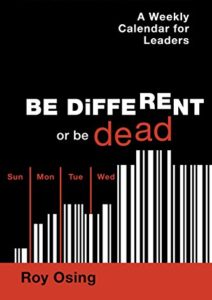
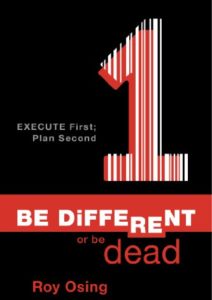
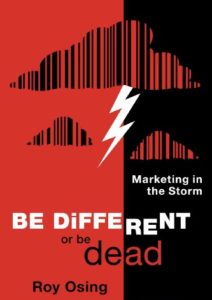
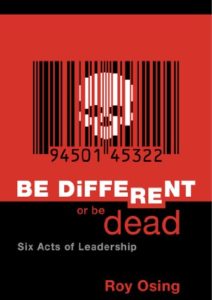
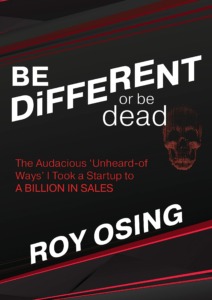
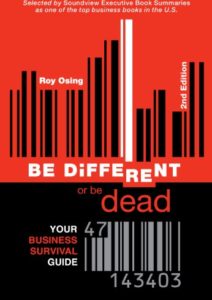
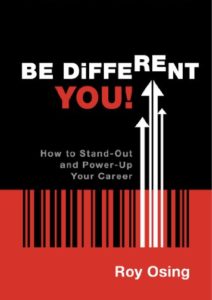







Comments (3)
This are the real word to get sales
this is the best articles
Great sales lesskn